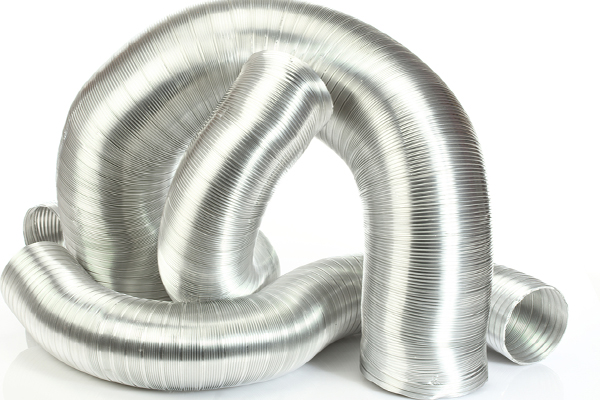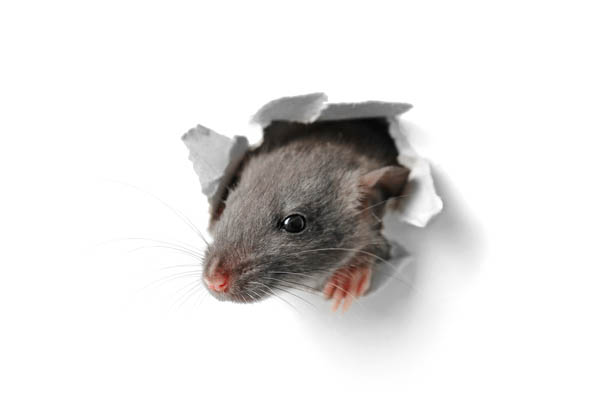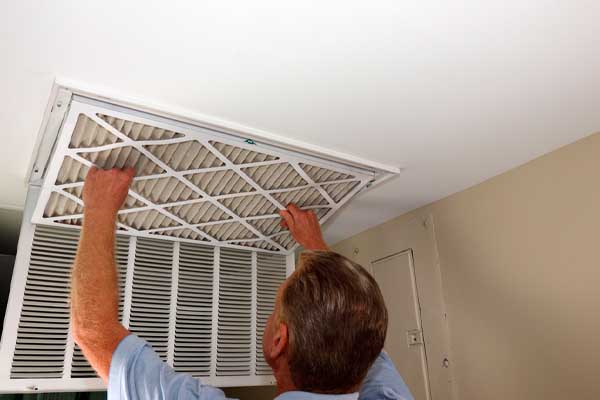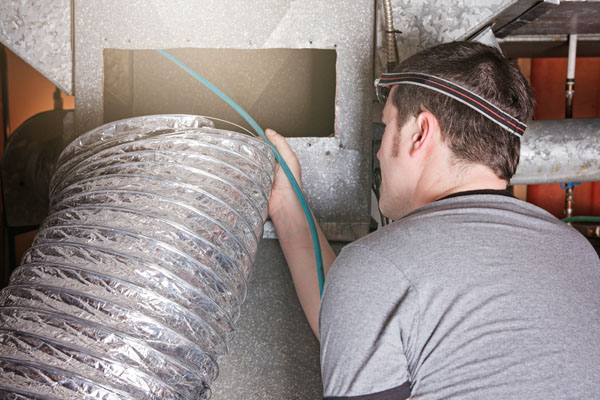Ductwork Makes Banging Noise: Causes & Solutions

With central, forced-air heating and cooling systems, warm or cold air, depending on the temperature, is generated in one area and dispersed around the house via ductwork. Because they are typically formed of metal, ducts are sensitive to ductwork noise with the smallest disturbance. Noise within the ductwork system can become quite loud, irritating homeowners in the process. It might even keep folks from getting a good night’s sleep. Continue reading to discover why this occurs and what a person can do to fix this issue.
Potential Causes of Ductwork Noise
Contents
A number of factors might cause noise to be produced by HVAC ducts. You should pay great attention to the noises being produced to determine their nature. Even if you are unable to see what is causing the issue, the sounds you hear can provide you with some insight. In fact, many people deal with banging sounds coming from HVAC ductwork quite frequently.
Banging HVAC Ductwork
Some homeowners mention hearing popping and pounding noises coming from the ducts. More often than not, this usually happens in short bursts. It results from the ductwork’s walls expanding and contracting as inside temperatures vary. This kind of noise may also be caused by pressure changes. Keep in mind that ducts can either expand or compress depending on the surrounding temperature. Even though it can’t be seen with the naked eye, you can hear it immediately after starting the furnace or air conditioner.
Additional Root Causes For Ductwork Noises
In addition to banging and popping, ductwork can also make other strange noises. Here are a few typical ones, along with their causes.
Rattling Heating & Cooling Ductwork

There is a significant likelihood that loose metal pieces are to blame if you hear some rattling sound coming from the air ducts. When they bump into each other, they make noise. In fact, as ductwork gets older, this usually happens most of the time. Due to the static pressure, the connections start to loosen, and the seals start to fail. The noise will continue as long as the air continues moving through the ducts. Although it could begin quietly, the sound will eventually get louder until you can no longer ignore it. Hire HVAC experts to assist you in identifying and resolving the issue.
Shaking HVAC Ductwork
The ducts occasionally may be audible and shaking or pulsating with a low hum. This frequently happens when a dirty filter restricts airflow on the return side. The lack of air triggers a decrease in pressure that causes the duct walls to shudder and vibrate. It is important to establish a routine for inspecting all the air filters. If it starts to get too filthy, either clean it up or get a new one to ensure efficiency. Thus, the ducts will run more quietly, and the system will remain highly efficient as a consequence.
Scratching Ductwork
 Another unwanted sound is the one that emanates from the air ducts. It is likely that rats, squirrels, raccoons, and other animals were able to get into the system if it sounds like something is scratching the metal walls. Act quickly to avoid them building a nest and making it their home, which would lower the air quality. If you hear buzzing, it might be a bee’s wings or the wings of another huge creature that has become stuck inside. Call an HVAC professional for assistance.
Another unwanted sound is the one that emanates from the air ducts. It is likely that rats, squirrels, raccoons, and other animals were able to get into the system if it sounds like something is scratching the metal walls. Act quickly to avoid them building a nest and making it their home, which would lower the air quality. If you hear buzzing, it might be a bee’s wings or the wings of another huge creature that has become stuck inside. Call an HVAC professional for assistance.
Booming HVAC Ductwork
You might hear a loud noise at the point where the duct’s trunk and plenum meet. This very same area usually experiences some of the biggest swings in temperature. The connection’s supply ducts will carry the noise throughout the house if it doesn’t have enough expansion joints or dampers. Installers who are knowledgeable and skilled take every precaution to minimize connection noise because they are aware that this is a possibility.
How to Minimize HVAC Ductwork Noise
Homeowners don’t have to put up with the noise for too long. From the ductwork, creatures and foreign items can be taken out. Competent HVAC professionals can fix problem areas. For people who want a quiet house, the noise produced by routine operation can be diminished in volume and made tolerable. You can use the practice solutions listed below to fix this issue:
Replace Your Air Filters

Always pay attention to the filters. These are designed to trap dirt while letting air through. The harder it is for air to get past the barrier, the more dirt they gather. To keep them functioning properly and efficiently, they must be changed every two to three months. However, some houses with pets and in dusty areas could need a change on a monthly basis. The frequency is specifically based on your home. The ducts’ banging and popping noises are reduced with a clean filter. Since air filters are reasonably priced, buy some today to improve the efficiency of your HVAC system.
Alter the Fan’s Speed
The airflow volume is initially chosen by the installers. After taking into account many aspects, each system has an optimal range. Many times the installers usually set the speed too high. You might reduce the fan speed in your home if this is the situation to alleviate static pressure. Setting the fan speed too low will make it difficult for conditioned air to reach some rooms, so you may want to get professional assistance with this.
Install Larger Ducts
Think about if your ducts can actually accommodate the amount of air the system needs to function properly. If the duct is too small, even if your actual heating and cooling systems are the right sizes, there will still be issues. So that they can investigate and talk about this with your HVAC contractor. Larger return and supply plenums and ducts also aid in decreasing noise. To increase airflow, combine these with high-velocity grills and registers.
Add a Bypass Duct

Consider using a bypass duct to reduce the pressure in a multi-zone system if it is high. A great technique to relieve the ductwork of extra stress and avoid typical problems is to lower the pressure. It will, however, only work in some circumstances. To determine whether this choice is a suitable fit for your ducts, speak with HVAC experts.
Try a Different Duct Shape
When installing new ducts, you should take the shape into consideration. Because of their clean lines and small profiles, rectangular ones are preferred. However, because of their lower pressure tolerance, they typically make more noise than spherical ducts. The latter would be worth a look if it can fit in your house. Speak with a local HVAC service.
Purchase a Duct Silencer
To further lessen the noise that round ducts make, a duct muffler can be placed. The duct muffler usually has a double-wall construction and built-in insulation to lessen the vibrations. These parts perform best when placed next to the air handling unit, fan, and other loud components. Keep in mind that they can only lessen undesirable noises. They can’t entirely get rid of them.
Cover the Ducts
The ducts can be covered in insulation to increase their energy efficiency. Additionally, this will reduce noise, especially the banging and popping sounds. For best results, let an expert technician handle this task every time.
Use a Ductless System Instead
If you have already tried the above noise reduction techniques but are still worried, you might want to avoid ducting completely via a ductless HVAC system. A ductless split system is a good option if you want to entirely avoid ductwork noise and upkeep. Ductless heating and cooling systems offer benefits like the ability to specify different zones, automatic temperature control, and improved energy efficiency.
Final Thoughts
Numerous problems can be indicated by ductwork noise. It can occasionally be a sign of a deeper issue like a pest infestation, an erroneous configuration of the system, or weak connections. In these situations, the noise is an excellent way to notify a homeowner of an issue that needs to be addressed. However, the system’s regular operation may also involve some level of noise. While there’s a chance it won’t go away, there are ways to lessen the volume and frequency. Find the best options for your system by consulting your HVAC contractor.
Call Miller Oil Company For All Your HVAC Needs

Miller Oil Company offers top-notch heating and cooling services that are second to none in the greater Hartford County, Connecticut area. We work with qualified professionals who can give you the best HVAC maintenance, repairs, installs, and replacements. All of our professionals have received the necessary training to handle your HVAC system effectively.
Miller Oil Company guarantees the most affordable local heating and cooling service pricing available anywhere. Our repair services can raise comfort levels, increase energy efficiency, and reduce heating and cooling expenditures to a great extent. Whether you need an HVAC replacement or repair, we can recommend the best system for your home within your price range. To ensure your satisfaction, we back all of our work with a warranty. Call Miller Oil Company right away to schedule a service appointment. We provide cost-free in-home quotes.
Click here to contact us today or give us a call at (860) 745-0326 if you have any questions. Click the link to view our service area.